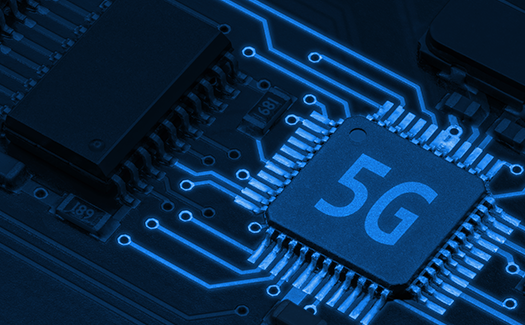
Polymer Capacitor Solutions for Data Center, Edge, and AI Servers
Published on- Capacitors
Panasonic is a leader in innovative polymer capacitor solutions for data centers, AI systems, and edge computing. These capacitors outperform traditional technologies in terms of efficiency and durability, addressing key challenges like power management and thermal control. Designed to support the shift to 48V DC power supplies, Panasonic's polymer capacitors—such as SP-CAP™, OS-CON™, and POSCAP™—feature low equivalent series resistance (ESR) and excellent thermal characteristics, making them essential for high-performance applications in modern data environments.
Powering the Future: The Essential Role of Polymer Capacitors in Next-Gen Technology
Panasonic has long been a leader in the electronics industry, and it is known for its commitment to innovation and high-quality electronic components. Data centers, artificial intelligence (AI) systems, and edge computing have become crucial to the modern digital economy as technology advances. These applications require efficient, reliable, high-performance components to manage power effectively. One such critical component is the polymer capacitor, which offers superior electrical characteristics and durability compared to traditional capacitor technologies. In this article, we will explore the role of polymer capacitors in data centers, AI, and edge computing, and highlight Panasonic’s diverse product offerings in this field.
Challenges in Data Center Environments and Server Applications
The increasing demand for efficiency, reliability, and performance in data center environments has made power management a critical aspect of system design. Data centers consume vast amounts of energy, requiring components that can optimize power efficiency while maintaining consistent performance. As AI workloads and edge computing applications grow, the need for advanced power solutions becomes even more pressing.
Power consumption and thermal management are among the most significant challenges modern data centers face. Excessive heat generation can reduce system efficiency, increase operational costs, and cause potential hardware failures. Effective thermal management is essential to ensure the longevity and reliability of key electronic components, including capacitors. As a result, selecting capacitors that offer low equivalent series resistance (ESR) and high ripple current capability is crucial to maintaining stable power delivery in these high-performance applications.
The transition to 48V DC power supplies in data centers has become an industry standard to improve energy efficiency and reduce power loss. This shift requires capacitors that can operate reliably under high-voltage conditions while providing stable performance. Panasonic’s polymer capacitors — with their high capacitance values, low ESR, and excellent thermal characteristics — are well-suited to meet these demands, ensuring efficient power conversion and distribution in modern data center environments.
Overview of Polymer Capacitors
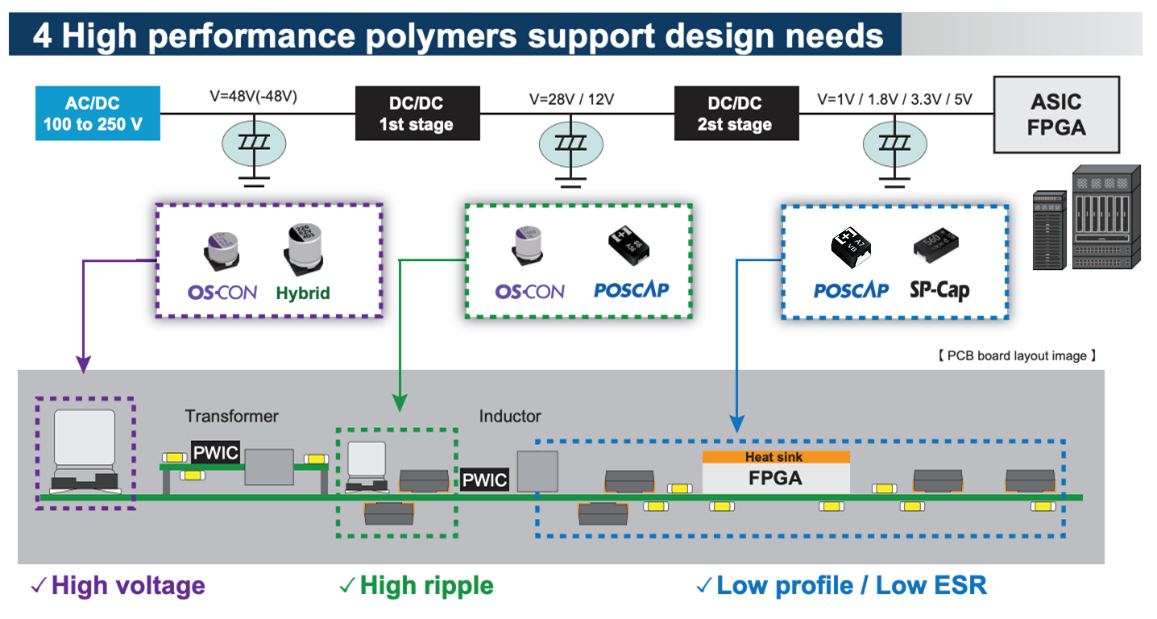
Polymer capacitors, a type of electrolytic capacitor, use a solid conductive polymer as the electrolyte instead of a liquid. This design enhances performance by reducing ESR and improving stability over time. Compared to traditional electrolytic capacitors, polymer capacitors offer better frequency response, lower heat generation, and higher endurance under varying environmental conditions. Additionally, they provide greater reliability in applications requiring high power and fast transient response. These features make them an excellent choice for data center and AI applications, where efficiency and durability are critical.
Panasonic’s Polymer Capacitor Product Line
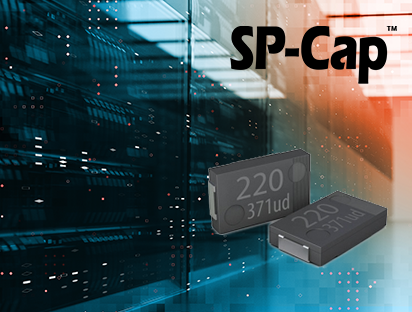
SP-Cap™ Polymer Aluminum
- Voltage: 2 to 35 VDC
- Capacitance: 10µF to 820µF
- Ripple up to 10.2Arms
- Lowest ESL/ESR: 0.5nH/3mΩ
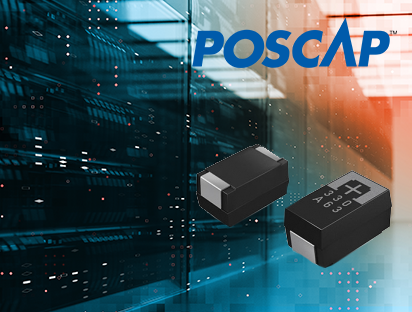
POSCAP™ Tantalum-Polymer
- Voltage: 2 to 35 VDC
- Capacitance: 10µF to 1500µF
- Case Size: 3.5x2.8 and/to 7/3x4.3mm
- ESR: As low as 5mΩ
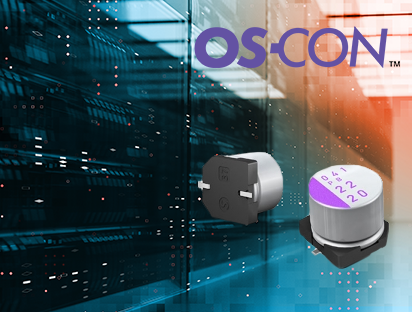
OS-CON™ Aluminum Polymer
- Voltage: 2 to 100 VDC
- Capacitance: 3.3µF to 2700µF
- Ripple up to 7.5Arms
- ESR: As low as 5mΩ
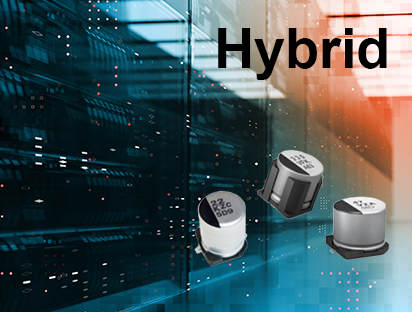
Polymer Hybrid Aluminum Electrolytic Capacitor
- Voltage: 25 to 80 VDC
- Temp: Up to 145°C
- Ripple up to 4.0Arms
- AEC-Q200 Compliant
Hybrid capacitors combine the best features of aluminum electrolytic and polymer capacitors, offering high energy density and compact design. These capacitors provide excellent reliability, making them suitable for power supplies in AI and edge servers. Their resilience in harsh environmental conditions ensures consistent performance in demanding applications.
SP-CAP™ polymer aluminum capacitors are designed for ultra-low-ESR, large-capacitance applications and provide excellent frequency characteristics. Their robust construction ensures reliability even under fluctuating loads. This makes them an ideal choice for high-power processing environments, including AI acceleration and deep learning computations in data centers.
OS-CON™ capacitors are aluminum-polymer solid capacitors that offer superior long-term stability, making them perfect for applications where longevity and durability are essential. These capacitors excel in managing thermal performance. This makes them particularly useful in AI servers and edge devices where consistent power management is necessary.
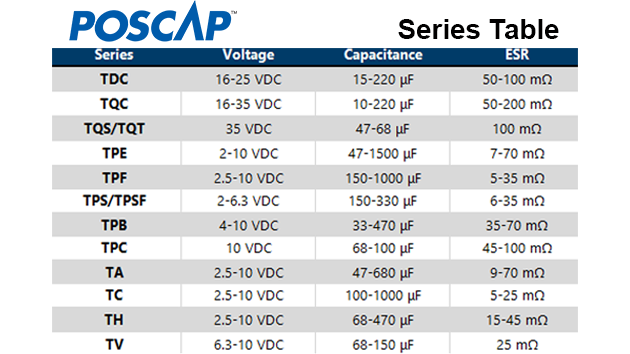
POSCAP™ capacitors are solid electrolyte chip capacitors known for their high current-handling capabilities and stable performance over time. They offer a quick response time, making them ideal for dynamic workloads in AI and cloud-based processing applications. These capacitors ensure power stability in compact, high-performance computing environments.
Key Features and Benefits
Panasonic’s polymer capacitors offer several key features that make them ideal for data centers and AI applications.
Low ESR reduces power loss and enhances efficiency, minimizing heat buildup. This feature ensures that systems operate at peak efficiency while reducing overall energy consumption — an essential factor in large-scale data centers.
A wide operating temperature range ensures stability across diverse environmental conditions. These capacitors are engineered to function reliably in extreme conditions, making them suitable for high-performance AI and edge computing applications.
- A compact size enables high-density PCB layouts without sacrificing performance. As modern electronic designs push for more power in smaller spaces, having capacitors that fit within tight layouts while maintaining excellent electrical characteristics is crucial.
- High ripple current capability supports demanding power requirements for modern computing loads. This feature ensures that power delivery remains stable even in high-power applications like AI processing and machine learning computations.
Environmental compliance meets Restriction of Hazardous Substances (RoHS) standards, ensuring sustainable and eco-friendly solutions. Panasonic’s commitment to environmentally responsible manufacturing processes ensures that these capacitors contribute to greener and more sustainable technologies.
By integrating these features, Panasonic’s polymer capacitors deliver exceptional performance, improving efficiency and reliability in high-power applications.
Application Use Cases

Data Centers
Edge and AI Servers, PDUs, Call Systems, etc.
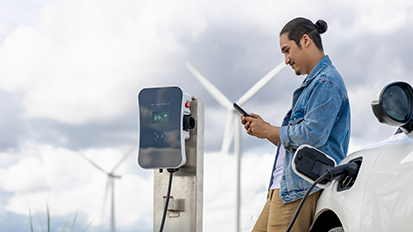
Infrastructure
EV Chargers, Power Supply, etc.

Alternative Energy
Solar panels, wind power generation, etc.

Agriculture Machinery
Lawn mowers, farming machinery, etc.

Smart Meters
Smoke detectors, smart meters, etc.

Medical Devices
Wearables, monitors, MRI/CT scanners, etc.
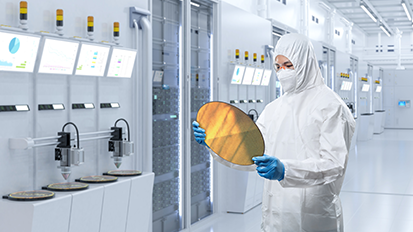
Test & Measurement
Semiconductor testing, inspection equipment, etc.

Appliance
Refrigerators, AC units, washer machines, etc.

Network
Wireless Routers, SSD, etc.
Panasonic’s polymer capacitors are widely utilized across various industries, particularly in data centers and AI applications.
These capacitors benefit data centers through enhanced power delivery and optimized thermal performance. Ensuring reliable server operation and reducing power losses are critical to managing modern cloud and AI-driven infrastructures.
AI servers require stable power regulation to handle dynamic workloads. Polymer capacitors help maintain consistent voltage levels, which are crucial for machine learning and AI-driven computations that require extensive processing power.
Edge servers offer reliability in remote and compact installations, where space constraints and power efficiency are key considerations. Panasonic’s polymer capacitors provide the necessary performance to ensure efficient power management in these environments.
Conclusion
In an era where data centers, AI, and edge computing demand higher efficiency and reliability, Panasonic’s polymer capacitors provide a critical solution. With their low ESR, high ripple current capabilities, and robust construction, these capacitors address power management challenges in modern computing environments. By incorporating Panasonic’s polymer capacitor solutions, engineers can optimize their systems for performance, durability, and sustainability. To learn more about Panasonic’s polymer capacitors and their applications, visit the Panasonic polymer capacitor product page or contact page for further assistance.



